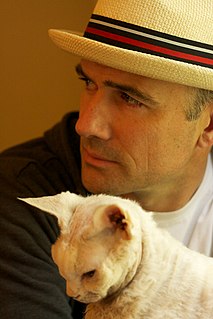A Quote by Quintus Ennius
I never indulge in rhyme or stanza Unless I'm in bed with the influenza.
Related Quotes
This is what rhyme does. In a couplet, the first rhyme is like a question to which the second rhyme is an answer. The first rhyme leaves something in the air, some unanswered business. In most quatrains, space is created between the rhyme that poses the question and the rhyme that gives the answer - it is like a pleasure deferred.
For no one, in our long decline,So dusty, spiteful and divided,Had quite such pleasant friends as mine,Or loved them half as much as I did. [stanza 3]The library was most inviting:The books upon the crowded shelvesWere mainly of our private writing:We kept a school and taught ourselves. [stanza 15]From quiet homes and first beginning,Out to the undiscovered ends,Theres nothing worth the wear of winning,But laughter and the love of friends. [stanza 22]You do retain the song we set,And how it rises, trips and scans?You keep the sacred memory yet,Republicans? Republicans?[stanza 36]
In 1967, in DeKalb v. DeSpain, a court (255 F.Supp. 655. N.D.Ill. 1966.) took a 4-line nursery rhyme used by a K-5 kindergarten class and declared the nursery rhyme unconstitutional. The court explained that although the word 'God' was not contained in this nursery rhyme, if someone were to hear the rhyme, he might think that it was talking about God - and that would be unconstitutional!



































